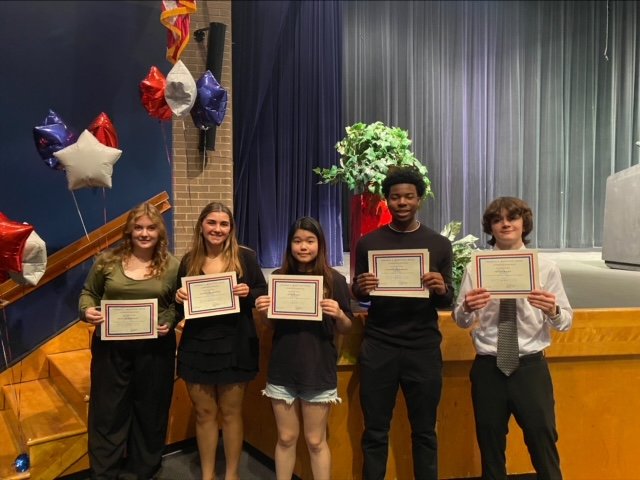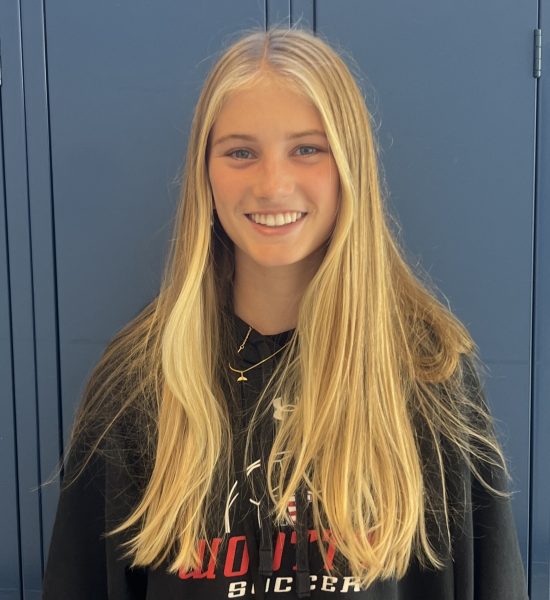Jumping into college life can be a daunting task, with obstacles from making new friends, to moving away from home, but students heading into college also have to navigate an adjustment from high school to the rigors of college academics. While this school offers a vast selection of AP courses structured to mimic the workload and difficulty of a college class, do they actually prepare students for the demanding academics of college?
According to U.S. News and World Report, this school is ranked #4 in the state and #234 in the nation for college readiness. The wide variety of AP courses students have access to allow them to explore different potential majors and areas of interest in a low-risk environment. Reflecting on her high school career, as a freshman at Georgetown University and a 2023 alum, Vivian Pisani emphasizes AP Research and AP Seminars. The courses are focused on students doing a school research project independently and with minimal teacher assistance. “AP Research and AP Seminar taught me how to manage my time and this was really important because time management is really crucial in college,” Pisani said.
Alongside Pisani, a freshman at Washington University and 2023 alum Sofie Vinick also highlighted AP Seminar, AP Language, and AP Literature as classes that best prepared her for college. Vinick explained how the classes made the content in the curriculum more applicable to real life, though after taking 10 AP courses, “most of them were not super work heavy, while most of my classes here are a lot of work.”
The workload can vary from a number of factors including college, course and major. College and Career Coordinator Jennifer MacDonald considers science majors to be the most difficult to adapt to. “The students that are taking the harder science classes, they have had to adjust to a lot in college,” MacDonald said.
With lectures, labs and discussion sessions, the time-consuming workload can require more hours each week dedicated to one subject that high school students aren’t prepared for. While the school provides challenging science courses, including AP Biology and AP Physics, MacDonald acknowledges that with even higher-level science courses in college, students have to balance several tasks all at once. Despite the time constraints and workload, Jake Hoffman, a freshman at the University of Southern California and 2023 alum said, “[Some] science classes prepare you for college but most don’t.”
Though schools in other counties are exposed to the pressures of midterm and final exams, MCPS does not have mid-year or final exams. Hoffman said making midterms and finals customary is a way the school could better prepare students for college.
Though college curriculums differ vastly from high school, a prevalent difference is that in college the primary method of teaching is through reading textbook chapters. “This was a big surprise for me when I came because I wasn’t used to reading a lot for homework,” Pisani said.
Though preparedness for college is largely dependent on the classes students take in high school, this school also offers opportunities for college representative visits, evening programs and virtual programs for students. MacDonald also provides help with internships and summer and pre-college programs, emphasizing the importance of these opportunities,”to figure out if there is a certain area that interests you,” MacDonald said.








![Editors-in-Chief Ahmed Ibrahim, Helen Manolis, Cameron Cowen, Alex Grainger, Emory Scofield, Hayley Gottesman, Rebekah Buchman and Marley Hoffman create the first print magazine of the year during the October press days. “Only a quarter of the schools in MCPS have programs that are like ours, a thriving, robust program. That makes me really sad. This is not just good for [the student journalists] to be doing this, it’s good for the entire community. What [student journalists] provide to the community is a faith in journalism and that continues for their lifetimes," Starr said.](https://woottoncommonsense.com/wp-content/uploads/2025/10/wmpoFTZkCPiVA3YXA4tnGoSsZ4KmnKYBIfr18p3l-900x1200.jpg)
